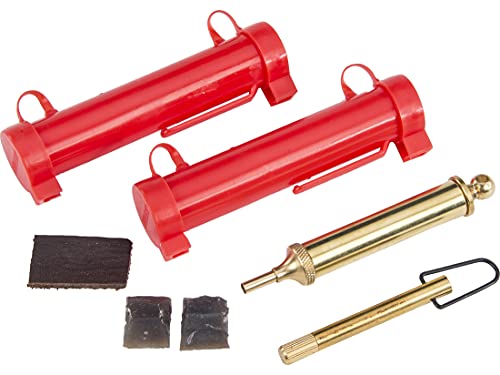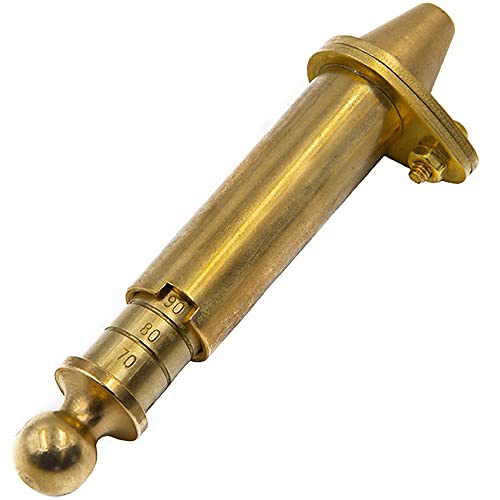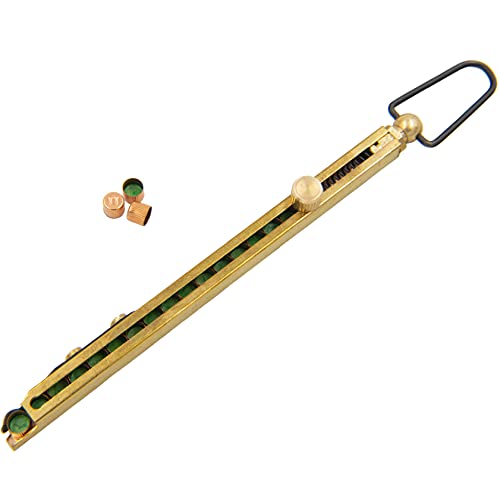ozark57 said:
Just got back into black powder and have noticed a lot of new cleaning solvents and solutions available. I always used to remove my barrel and put it into a bucket of boiling water and clean in the traditional manner. Also I just bought a real nice Kentucky rifle in .36 caliber that removing the stock on to clean every time is not practicle. What products/ways are best?
Unless you are shooting one of the highly corrosive substitutes boiling water is not needed.
To clean any fixed breech flint gun used with BP in the stock remove the lock and plug the vent with a round toothpick. Wipe exterior of the barrel and the powder fouled wood clean with a damp patch.
I use a mix of window cleaner and water 1 part WC to 2-3 parts water.
I use a spray bottle in in the shop to spray about 3-4" of this mix in the bore. I then upend the gun 4-5 times with a thumb over the muzzle to stir things up. Now dump the mix out then wet patch 1-2 times. Repeat the slosh and dump process and wet patch. Slosh dump again then slosh dump with plain water. This will wash away 90%+ of the fouling and corrosive elements.
If there is a lot of fouling or its suspected to be built up in the breech twist a wad of wet cleaning patch material against the breech with the worm to wipe this clean after the first slosh and dump. Its not generally needed but I do it anyway.
Wet patch 2-3 patches if it is looking pretty clean then dry patch till most of the water is gone. Pull vent plug and dry patch a few more. It is possible to get a little black at this point but if the wet patches were clean its likely iron oxide from the drying bore.
When the patches are pretty dry squirt some (2-3 seconds of spray) WD 40 in the muzzle then using the little plastic pipe the new cans all come with shoot some, a second or 2 in the vent. Wipe once with a loose fitting patch then stand the gun muzzle down on a folded paper towel to drain.
Be careful not the spray wd40 out the vent when running the patch down.
Clean the lock, dry and oil the exterior.
There will likely be some black manure that drains out of the bore with the wd40. Unless there is a LOT its not a problem a little at coming out of the grooves is not a big deal. Wipe the bore with 2-3 dry patches. Reassemble the rifle.
Oil bore with a preservative oil and stand muzzle down overnight to keep oil from running into the stock.
Guns that have been shot with corrosive substitutes may be much harder to clean and this may not work as well.
Percussion guns can be cleaned in this manner by putting a piece of rubber, like old inner tube over the nipple then pressing the hammer tight against it.
Dan





















